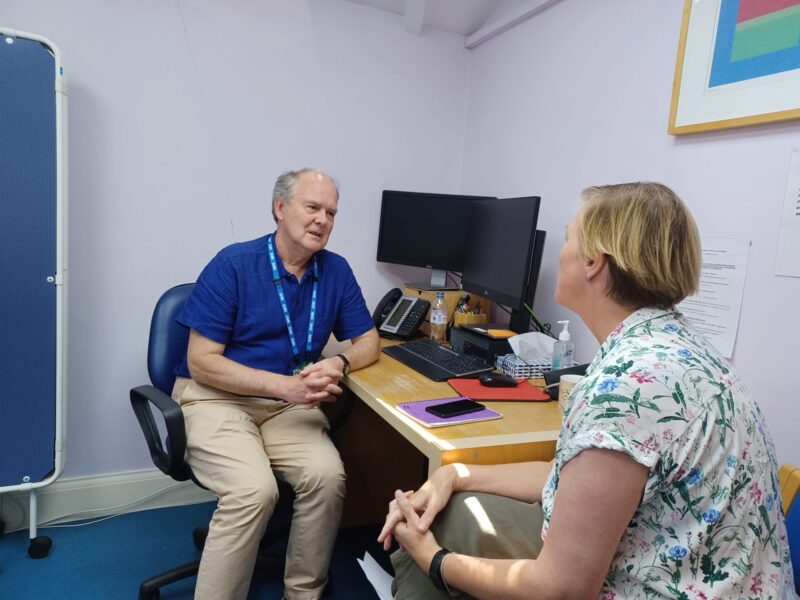Home > Hub article > NHS Continuing Healthcare
NHS Continuing Healthcare
Created: 21/06/2021, Bright Futures @Ruils
Who by? Bright Futures @Ruils
Source: View/download article
Why might it be of interest?
A few of our young people will be eligible for their support needs to be met by NHS Continuing Healthcare. If they are eligible both their NHS healthcare needs and their social care needs will be met by NHS Continuing Healthcare. There is a pretty stringent process to go through to establish eligibility – an initial checklist process to determine if there is any likelihood of a person being eligible, followed by an in depth assessment if it is deemed that a person might qualify.
You probably won’t have a choice. If your social worker or another professional thinks you might be eligible and kicks off the assessment you will have to go through it and if it is determined that you are eligible your funding will come from NHS CHC.
Decision support tool:
Assessment starts with the Checklist
- An individual cannot carry out the checklist assessment themselves but can request that one is carried out
- The checklist assessment can be completed by a nurse, doctor, other healthcare professional or social worker
- You should be fully aware that a checklist is being carried out and asked for your consent
If the Checklist threshold is reached a full assessment must be carried out using the Decision Support Tool (DST) and completed by a Multi Disciplinary Team (MDT)
- 2 professionals from different healthcare professionals, or
- 1 healthcare professional and 1 social care professional
- It is good practice to include someone who:
- Knows the individual
- Is involved in their care planning, delivery and support
Your eligibility for NHS continuing healthcare depends on your assessed needs, and not on any particular diagnosis or condition. If your needs change then your eligibility for NHS continuing healthcare may change.
Process:
- Checklist
- Coordinator appointed to oversee MDT assessment
- All relevant assessment reports gathered
- Including new or additional
- DST completed
- 12 domains (categories) recording overview of needs
- 4 key characteristics
- Recommendation as to whether the individual has a primary health need
- Recommendation verified
- If the individual is eligible the CCG arranges:
- Funds
- Care placement
- Home support package
- Personal health budget
- Meeting all assessed health and social care needs
- Regular reviews
How needs are classified:
P Priority
S Severe
H High
M Moderate
L Low
No needs
Categories:
- breathing
- nutrition (food and drink)
- continence
- skin (including wounds and ulcers)
- mobility
- communication
- psychological and emotional needs
- cognition (understanding)
- behaviour
- drug therapies and medicine
- altered states of consciousness
- other significant care needs
The assessors will look at your care needs are relate them to:
- what help you need
- how complex your needs are
- how intense your needs can be
- how unpredictable they are, including any risks to your health if the right care is not provided at the right time
As a guideline, if an individual has:
- at least 1 priority need, or
- severe needs in at least 2 areas, or
- severe needs in 1 area plus a number of other needs, or
- a number of high or moderate needs – depending on their nature, intensity, complexity or unpredictability
they can usually expect to be eligible for NHS continuing healthcare.
In all cases, the overall need, and interactions between needs, will be taken into account, together with evidence from risk assessments, in deciding whether NHS continuing healthcare should be provided.
The assessment should take into account the individual’s views and the views of any carers they have (this include parents and family). The individual should be given a copy of the decision documents, along with clear reasons for the decision.
It is possible to receive a joint package of care if you are assessed as having some health needs.
If your young person is not deemed eligible for CHC funding they will be referred back to adult social care.Care and support planning
If you’re eligible for NHS continuing healthcare, the next stage is to arrange a care and support package that meets your assessed needs.
Depending on your situation, different options could be suitable, including support in your own home and the option of a personal health budget.
Your CCG should work collaboratively with you and consider your views when agreeing your care and support package and the setting where it will be provided. However, they can also take other factors into account, such as the cost and value for money of different options.
From some limited experience with families with disabled young people in receipt of CHC funding it would appear that case workers are not always familiar with supported living and may direct families look at residential care. Either option might be right for your young person but if you do decide it’s supported living there is no reason why this cannot be achieved with CHC funding.
Categories: Health
Tags: chc, checklist, continuing care, continuing healthcare, nhs
